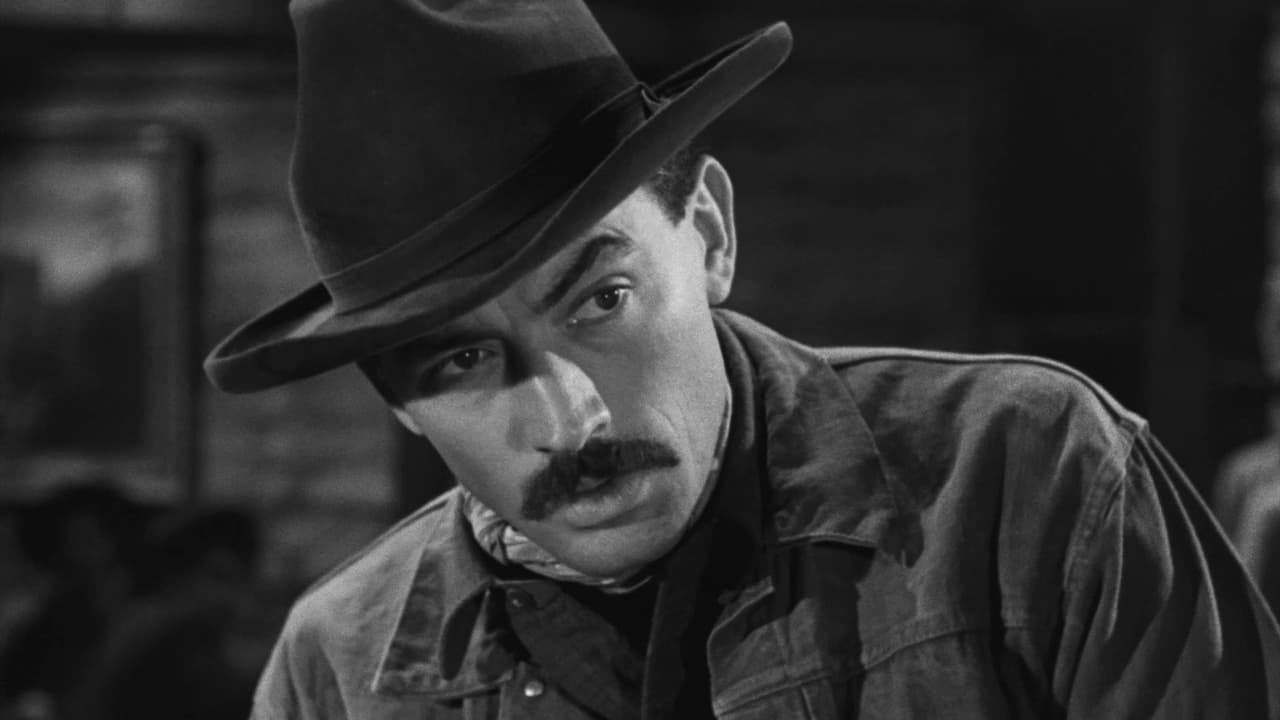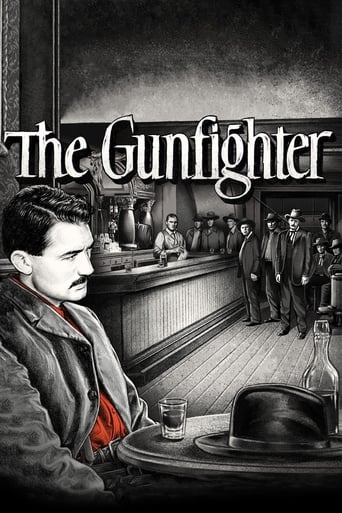James Hitchcock
Jimmy Ringo is a famous gunfighter, widely known as the "fastest gun in the West". Despite his fame, however, Ringo has become disillusioned with life. He is estranged from his wife, Peggy, and as a result of this estrangement has not seen his young son, also named Jimmy and now eight years old, since he was a baby. Simply walking away from his fame, however, is harder than it seems, because it has made him the target of every young punk eager to make a name for himself as "the man who shot Ringo." Early in the film one such punk, a hot-headed young cowboy named Eddie, deliberately picks a fight with Ringo, who is forced to shoot him dead. Because Eddie drew first, the killing is regarded as legitimate self-defence, but Eddie is forced to leave town to escape the vengeance of Eddie's angry brothers.Ringo flees to the nearby town of Cayenne. He has two reasons for going there. The first is that the local Marshal, Mark Strett is an old friend of his. The other is that he knows that Peggy is living in the town, although he does not know her address or the name she currently goes by. Despite their friendship, Strett urges Ringo to leave Cayenne, fearing (correctly) that his presence there will lead to trouble, but he refuses to do so until he has had a chance to speak to Peggy, with whom he is hoping for a reconciliation so that they can start a new life together. The longer Ringo remains in Cayenne, however, the more he is in danger- from Eddie's brothers, who have tracked him down, from a man who believes (wrongly) that Ringo killed his son and is out for revenge, from and Hunt Bromley, another youngster "ardent for some desperate glory", to use the words of Wilfred Owen from another context. The rights to film the story were originally acquired by Columbia Pictures, who offered the role of Ringo to John Wayne. He turned it down- not, apparently, because he disliked the script but because of a dislike for Columbia's president, Harry Cohn. Columbia then sold the rights to Twentieth-Century Fox, who cast Gregory Peck in the role. Many years later, however, Wayne was to play a similar character in his final film, "The Shootist". Both films have at their centre a notorious but disenchanted gunslinger who knows that he has not lived a good life and is seeking reconciliation and redemption. Wayne's character in "The Shootist", however, is an old and sick man who knows that he does not have long to live, whereas Ringo is a relatively young man in the prime of life. (Peck would have been 34 in 1950). The film was not a success when first released, and allegedly for an unusual reason- Gregory Peck's moustache. Jimmy Ringo was loosely based upon a real-life gunfighter named Johnny Ringo who sported a particularly luxuriant moustache, so the normally clean-shaven Peck followed suit. American audiences in the fifties, however, generally preferred their masculine screen idols to be free of facial hair, and stayed away. Hollywood learned its lesson. When "Gunfight at the OK Corral" was made a few years later, Burt Lancaster and his co-stars were all clean-shaven, even though they were portraying historical characters such as Wyatt Earp who had worn moustaches in real life. It may be because of its lack of success at the box-office that, even today, "The Gunfighter" tends to be less well-known than other classic Westerns from the fifties, such as "Shane", "Broken Arrow", "High Noon", "The Naked Spur", "The Searchers" or "The Big Country", which also starred Peck. In my view, however, it is unjustly neglected and deserves to rank alongside films of this quality. Peck, a thoughtful, intelligent actor gives his normal thoughtful, intelligent performance. His Ringo is a man who has achieved what was once his great ambition, to become a famous gunfighter, but who realises too late that fame won by violence is a trap from which he cannot escape and that in pursuing it he has thrown away love and friendship, which are of far greater value. (This is a lesson which Bromley still has to learn). Peck's contribution is balanced by that of Millard Mitchell as Marshal Strett. It is strongly implied that Strett, who is older than Ringo, may have been a lawless character himself in his younger days and that his service as a lawman is his way of atoning for his past. He tries to perform this service, however, by using the minimum amount of force necessary- unlike most Marshals he does not carry a gun- and this is something for which Ringo respects him. There have been many Westerns which have celebrated violence or served it up for our routine entertainment. Intelligent Westerns try to say something meaningful about it. The best examples of the genre, of which "The Gunfighter" is one, succeed in doing so. It deserves to stand alongside the likes of "High Noon", "The Big Country" and "The Shootist", and there is no higher compliment I can pay a Western than to rank it in that company. 9/10
LeonLouisRicci
A Proud Movie that could Side with the Films of Budd Boetticher and Anthony Mann, this Early Psychological Study is one of the Best of the Loaded Western Genre. its Simplistic Style and Sombre Tone is Handled with Finesse by Director Henry King with a Mature, Classy Script by William Bowers.Tense, Tight, and Taut at 85 Minutes the Film is a Character Study, in Fact it is All About Character with no Reference to Society or Towns, Settling the West, or any such Large Notions. This is Personal. Personal Choices and Consequences. Gregory Peck at His Brooding and Suffering Best. Smoldering Regret with One Last Try to Reunite His Family and Hide Far, Far Away, "...where nobody ever heard of me." A Fine Cast Lends Support with an Outstanding and Believable Millard Mitchell as a Former Friend.This of Course is a Predetermined Self-Delusion, not Only because He can Never Outrun His Past, but the Motion Picture Code of the Time, would not have it. Utilizing Divine Intervention and Controlling the Fate of Anyone who Dare Sin on Screen.If there is one Minor Quibble, it is the Very Final Scene where we get Corny Closing Lines that may make some Cringe, it is at the Church......"I am Mrs. Jimmy Ringo"…..."and his boy".
Jeff (actionrating.com)
See it – This is easily one of Gregory Peck's best movies, let alone best westerns. Let me set the mood for you. It's the story of a famous gunfighter who drifts from town to town, not looking for any trouble. But eventually some cocky young buck will try to see if he can "take him", and when the young buck gets himself shot, the gunfighter is run out of town. But he's tired of running, and there's one last stop he needs to make. Only this town is different…are you feeling the vibe yet? Alright, I'll stop. This is one of those tragic psychological westerns that doesn't have many showdowns, but the tension just builds and builds until the ending you know is coming still hits you upside the head. It won't score very high on the action scale, but this must-see classic was an early pioneer for dozens of similar westerns that would soon follow.

